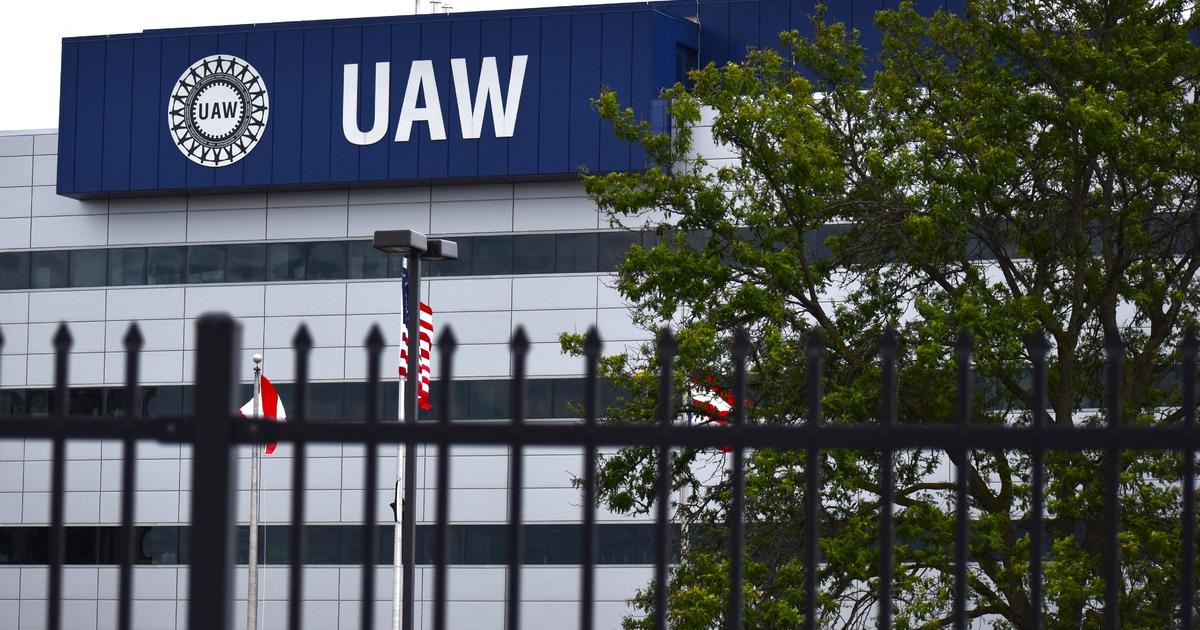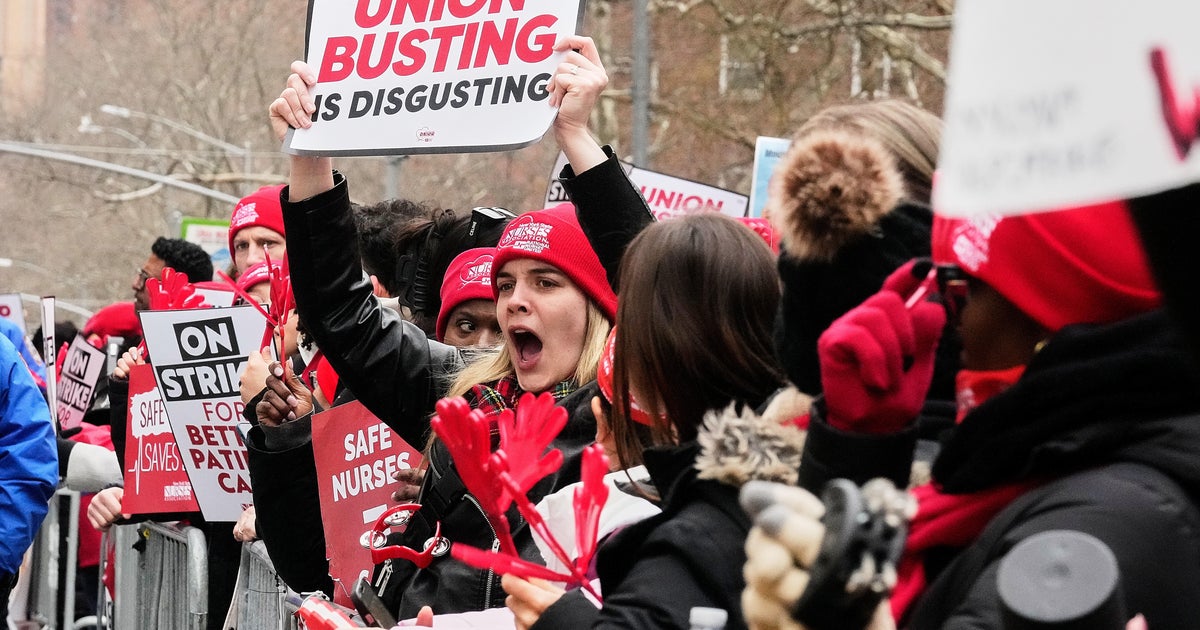Economic losses reach $10.4 billion in sixth week of UAW strike
(CBS DETROIT) - As Detroit's Big Three automakers have reached tentative agreements with the UAW, economic losses from the strike reached $10.4 billion.
UAW President Shawn Fain suspended the strike after reaching a "groundbreaking" agreement with General Motors, the last Detroit automakers they reached a deal with.
Autoworkers at Ford's first plant to go on strike voted 81% in favor of the tentative agreement, and tonight, Thursday, Nov. 2, Fain will share details about the tentative deal with Stellantis.
Economic Losses from UAW Strike
According to the Anderson Economic Group, LLC., the costs of the UAW strike reached $10.4 billion in its sixth week.
The group estimates the following losses through Oct. 26, the end of the sixth full week of the strike:
- Wages of OEM Workers - $650 million.
- Losses to the Detroit 3 Manufacturers - $4.3 billion.
- Lost Wages and Earnings to Supplier Companies and Workers - $3.3 billion
- Loses to Dealers, Customers, and Ancillary Auto Industry Workers - $2.0 billion
To determine the economic impact of lost wages to workers and other workers who were temporarily laid off or forced to decrease their hours, lost earnings for the Big Three, supplier losses, and dealer, customer, and other auto industry losses.
The UAW's tentative agreement with Ford was reached before the week ended, and the agreements with General Motors and Stellantis were reached after.
Even though the strike has been suspended, the cost of the strike will still be much higher than the estimated figures.
"The UAW achieved all their major goals in this strike, including big wage increases and multiple other demands. As Shawn Fain proclaimed when a tentative agreement was reached with Ford, the UAW won a 'lucrative' contract," said AEG CEO Patrick Anderson. "That victory doesn't come without costs. It occurred after the furloughing of over 56,000 Ford, GM, and Stellantis workers around the county, the idling of more than 70 facilities, and over a half billion in lost wages to UAW members."
In addition, the economic group says the total cost of the strike will be higher than it was in its first six weeks, even if the agreements are approved and ratified quickly due to additional production losses, the allowance for possible ratification bonuses, adjustments depending on dates of plants reopening, the impact of the delayed or postponed investments and adjustments for strike-related costs from Oct. 27 and after.
For more on the latest UAW news, visit here.







